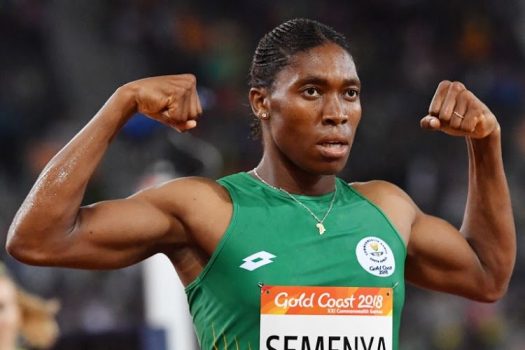 Switzerland may be known for its neutrality but at the Court of Arbitration for Sport in Lausanne this week, a legal tussle between the International Association of Athletics Federations (IAAF) and South African runner, Caster Semenya is bound to draw in everything from science, sport and gender politics.
Switzerland may be known for its neutrality but at the Court of Arbitration for Sport in Lausanne this week, a legal tussle between the International Association of Athletics Federations (IAAF) and South African runner, Caster Semenya is bound to draw in everything from science, sport and gender politics.
If the outline of the IAAF’s case, made by their lawyer, Jonathan Taylor is anything to go by and is indicative of what will ensue over the next five days, then the outcome could get very ugly.
Semenya, the 28-year-old double Olympic champion who has been almost unbeatable over the 800 and 1500 metres since 2015 is a heroine to the South African people who is celebrated by the country’s government and women’s rights activists across the world.
Despite her fame and achievements over the years, the IAAF has asked her to start taking medications in the form of a contraceptive pill in order to artificially lower her testosterone levels.
IAAF, the world’s athletics governing body is seeking to overturn the current rules which allow Semenya and other hyper-androgenic athletes or those with differences in sexual development (DSD) to compete without restriction.
Taylor is of the opinion that if Semenya wins her case, the entire future of women’s sport in certain events will be put under threat.
“Without restriction, athletes with DSDs have set more than 100 records at national, continental and world levels, the competition is not fair, the playing field is not level. So the IAAF rules allow that participation.
“But they say that at international level, athletes with DSD must drop their testosterone levels down from male to female levels, so that the playing field is level,” Taylor told Sky News.
Taylor’s concern is that should Semenya be successful, women’s sport as we know it will be ruined in the future not just by athletes with DSD but by male and female transgender athletes.
“If Caster wins her case, the IAAF will have to let people compete in female categories based on their legal sex which these days can be a matter of choice.
“That means that you will have people with testes and high male levels of testosterone competing in the female categories and that will mean women with ovaries and low levels of testosterone have no chance of winning. That will in the long run threaten to destroy women’s sport.”
It is however the job of Semenya’s lawyers to convince the judges that she should be free to run against women without restriction, a verdict likely to bolster the case of transgender athletes to compete in women’s sport.
If however Semenya fails to get a positive verdict, she may be left with no option but to compete against male athletes or race at long distances unless she takes daily medication.
Whatever way the case turns out, the hearing is expected to have a monumental impact on the future of world athletics.

PSG Secures Champions League Semifinal Spot With Victory Over Barcelona
Borussia Dortmund Makes Historic UEFA Champions League Semifinal Breakthrough
Bayer Leverkusen End Bayern Munich’s Bundesliga Dominance With Historic Title Win
Super Eagles Triumph In ‘Jollof Derby’ With 2-1 Victory Over Super Rivals, Black Stars